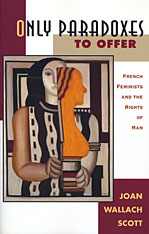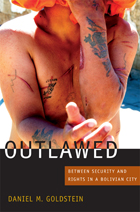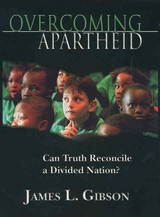5 start with O start with O

We speak of rights as though they are objective matters of fact that have a crucial bearing on how we ought to behave. Yet few, if any, rights are universally acknowledged without wide differences of meaning. Instead, they usually represent the particular ideals of the individuals or groups that claim them. Theories of rights have always grappled with this central problem, but none of the literature on the subject has offered a satisfactory solution. Lloyd Weinreb makes the first significant advance toward an understanding of what rights are, how they function in our lives, and why we need them.
Weinreb’s central argument is that rights are tightly connected to responsibility. They are the normative constituents of persons, attributes that we have rightly, as our due. As such, they enable us to overcome the antinomy of moral freedom and natural causal order. Without them, we could not regard human beings as persons, that is, as free and responsible, or autonomous. Since responsibility is a structural feature of our experience and a matter of fact, rights too are matters of fact.
Against a review of the current debates on the subject, Weinreb fully elaborates his original argument on the nature of rights and finds the source of concrete rights in the nomos, or deep conventions, of a community. Applying his theory, he shows how it helps to answer specific questions about animal rights, human rights—including, in the context of abortion and capital punishment, the right to life—and civil rights, including particularly rights of the handicapped, gay rights, and affirmative action in contemporary American society. Along the way, Weinreb shows that Oedipus and Roger Clemens have more in common than either would probably have supposed.
This highly original work will significantly redirect the study of rights. It will be especially valuable to those who practice or study law, philosophy, politics, and public policy.

In On the Spirit of Rights, Dan Edelstein answers this question by examining the complex genealogy of the rights that regimes enshrined in the American and French Revolutions. With a lively attention to detail, he surveys a sprawling series of debates among rulers, jurists, philosophers, political reformers, writers, and others who were all engaged in laying the groundwork for our contemporary systems of constitutional governance. Every seemingly new claim about rights turns out to be a variation on a theme, as late medieval notions were subtly repeated and refined to yield the talk of “rights” we recognize today. From the Wars of Religion to the French Declaration of the Rights of Man and of the Citizen to the 1948 Universal Declaration of Human Rights, On the Spirit of Rights is a sweeping tour through centuries of European intellectual history and an essential guide to our ways of thinking about human rights today.

When feminists argued for political rights in the context of liberal democracy they faced an impossible choice. On the one hand, they insisted that the differences between men and women were irrelevant for citizenship. On the other hand, by the fact that they acted on behalf of women, they introduced the very idea of difference they sought to eliminate. This paradox--the need both to accept and to refuse sexual difference in politics--was the constitutive condition of the long struggle by women to gain the right of citizenship. In this new book, remarkable in both its findings and its methodology, award-winning historian Joan Wallach Scott reads feminist history in terms of this paradox of sexual difference.
Focusing on four French feminist activists--Olympe de Gouges, who wrote the Declaration of the Rights of Woman and Citizen during the French Revolution; Jeanne Deroin, a utopian socialist and candidate for legislative office in 1848; Hubertine Auclert, the suffragist of the Third Republic; and Madeleine Pelletier, a psychiatrist in the early twentieth century who argued that women must "virilize" themselves in order to gain equality--Scott charts the repetitions and variations in feminist history. Again and again, feminists tried to prove they were individuals, according to the standards of individuality of their day. Again and again, they confronted the assumption that individuals were men. But when sexual difference was taken to be a fundamental difference, when only men were regarded as individuals and thus as citizens, how could women also be citizens? The imaginative and courageous answers feminists offered to these questions are the subject of this engaging book.


READERS
Browse our collection.
PUBLISHERS
See BiblioVault's publisher services.
STUDENT SERVICES
Files for college accessibility offices.
UChicago Accessibility Resources
home | accessibility | search | about | contact us
BiblioVault ® 2001 - 2024
The University of Chicago Press









